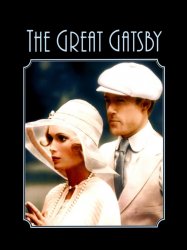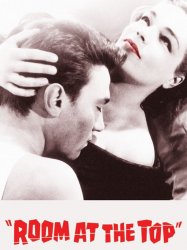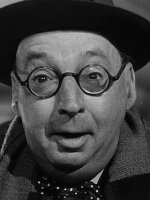Jack Clayton is a Actor, Director and Associate Producer British born on 1 march 1921 at Brighton (United-kingdom)

Jack Clayton (1 March 1921 – 26 February 1995) was a British film director, who specialised in bringing literary works to the screen.
Starting out as a teenage studio "tea boy" in 1935, Clayton worked his way up through British film industry in a career that spanned nearly 60 years. He rapidly rose through a series of increasingly important roles in British film production, before shooting to international prominence as a director with his Oscar-winning feature film debut, the landmark 1959 drama Room at the Top.
Clayton looked set for a brilliant future, and he was highly regarded by peers and critics alike, but a number of overlapping factors hampered his career. He was a notably 'choosy' director, who by his own admission "never made a film I didn't want to make", and he repeatedly turned down films (including Alien) that became huge hits for other directors. But he was also dogged by bad luck and bad timing - the Hollywood studios labelled him as 'difficult', and studio politics quashed a string of planned films in the 1970s, which were either taken out of his hands, or cancelled in the final stages of preparation. In 1977 he suffered a double blow - his current film was cancelled just two weeks before shooting was due to begin, and a few months later he suffered a serious stroke which robbed him of the ability to speak, and put his career on hold for five years.
Although Clayton worked almost constantly on a wide range of significant projects during his years as a director, most either never made it into production, or wound up being made by other directors, and he was only able to complete seven feature films before his death in 1995. However, despite this relatively small oeuvre, the films of Jack Clayton continue to be appreciated, and both they and their director have been widely admired and praised by leading film critics like Pauline Kael and Roger Ebert, and by film industry peers including Harold Pinter, Martin Scorsese, Guillermo del Toro, François Truffaut, Tennessee Williams and Steven Spielberg.
On the first anniversary of Clayton's death, BAFTA held a ceremony to celebrate his life and career, which featured a screening of The Bespoke Overcoat and a solo flute performance from Delerue's score for Something Wicked This Way Comes, which was a favourite of Clayton's wife Haya. Tributes were delivered by Sir John Woolf, Harold Pinter, Karel Reisz, Freddie Francis, Clayton's editor Terry Rawlings, his agent Robert Shapiro, and actors Sam Waterston and Scott Wilson, with whom he had worked on The Great Gatsby. In his professional tribute to Clayton, Harold Pinter said:
"Jack Clayton was a director of great sensitivity, intelligence and flair. He was a gentle man, with a quiet, wry sense of humour, but professionally he possessed the utmost rigour and a fierce determination. I wrote the screenplay of The Pumpkin Eater in 1963. It remains, in my view, a film of considerable power and, of course, absolute integrity."
Former colleague Jim Clark was given his major break by Clayton, who hired him as the editor on The Innocents. They became close friends (and regular drinking partners) during the making of film. In his 2010 memoir Dream Repairman, Clark offered a number of insights into their personal and professional relationship, as well as the often contradictory personality traits exhibited by the director, whom he recalled as "a very complex personality. The iron fist in the velvet glove."
"He was a complex man - he drank too much, smoked too much and was dangerously unpredictable. Jack was a barroom brawler who would, if provoked, attack people with his fists. He was also charming and seductive, which masked his many faults."
Clark quickly came to share the high esteem in which Clayton was held by colleagues, saying that Clayton "... mesmerized me, having a Svengali effect. He was absolutely revered by the crew, and I cannot deny falling under his spell." Clark recalled the experience of editing The Innocents as easy and pleasurable, thanks to Clayton's meticulous approach to filmmaking, recalling that Clayton had "a very certain approach to his material, having worked out everything beforehand. He was a perfectionist who left nothing to chance, and was very precise in his approach to work."
In contrast, however, Clark also remarked on Clayton's "legendary" indecision, which he claimed was the reason it took him so long to settle on a new project, and which (in Clark's view) made Clayton prone to 'agonising' over sequences he was unsure of, screening them again and again and making tiny adjustments until he was comfortable with the sequence. :
Clark also described Clayton as "a big drinker who used to tipple all day - mostly brandy - and he was a chain smoker". He considered that Clayton had "a perverse sense of humour", and that the director (who, in his view, had been "highly influenced" by his contact with John Huston) also emulated Huston's "sadistic sense of practical joking". Clayton's personal assistant Jeannie Sims (who had previously worked for Huston) had been badly burned as a child, leaving her with scars on her hands and face, and she was terrified of fire, but according to Clark, Clayton "made it his business to try and set Jeanie alight as often as possible. He would go to enormous lengths, preparing bonfires that Jeanie would supposedly be put onto."
As noted above, Clark also revealed that, while often charming, Clayton could be temperamental, and was sometimes prone to outbursts of extreme anger. He recounted one incident in which Sims was unavoidably late calling Clayton with the reviews from the pre-released critics' screening of The Innocents. When Sims finally contacted him, Clayton (who had been too nervous to attend) reportedly flew into a rage, viciously berating Sims over the phone, and when Clark arrived at Clayton's studio office the next morning, he discovered that Clayton had completely smashed a large plaster scale model of Bly House, and was refusing to speak to them. Although Clark worked with Clayton on both The Innocents and The Pumpkin Eater, their working relationship and friendship effectively ended after the latter film, after Clayton apparently sent Clark a vitriolic letter blaming him for the failure of the film. The two met again at Paramount Studios in Hollywood, while Clayton was working on The Great Gatsby, during which (according to Clark):
" (Clayton) upset everyone by hurling a chair through his office window. The office window was on the first floor and the chair landed on some executive's parked Mercedes."
Source : Wikidata
Jack Clayton

- Infos
- Photos
- Best films
- Family
- Characters
- Awards
Nationality United-kingdom
Birth 1 march 1921 at Brighton (United-kingdom)
Death 26 february 1995 (at 73 years) at Slough (United-kingdom)
Birth 1 march 1921 at Brighton (United-kingdom)
Death 26 february 1995 (at 73 years) at Slough (United-kingdom)
Starting out as a teenage studio "tea boy" in 1935, Clayton worked his way up through British film industry in a career that spanned nearly 60 years. He rapidly rose through a series of increasingly important roles in British film production, before shooting to international prominence as a director with his Oscar-winning feature film debut, the landmark 1959 drama Room at the Top.
Clayton looked set for a brilliant future, and he was highly regarded by peers and critics alike, but a number of overlapping factors hampered his career. He was a notably 'choosy' director, who by his own admission "never made a film I didn't want to make", and he repeatedly turned down films (including Alien) that became huge hits for other directors. But he was also dogged by bad luck and bad timing - the Hollywood studios labelled him as 'difficult', and studio politics quashed a string of planned films in the 1970s, which were either taken out of his hands, or cancelled in the final stages of preparation. In 1977 he suffered a double blow - his current film was cancelled just two weeks before shooting was due to begin, and a few months later he suffered a serious stroke which robbed him of the ability to speak, and put his career on hold for five years.
Although Clayton worked almost constantly on a wide range of significant projects during his years as a director, most either never made it into production, or wound up being made by other directors, and he was only able to complete seven feature films before his death in 1995. However, despite this relatively small oeuvre, the films of Jack Clayton continue to be appreciated, and both they and their director have been widely admired and praised by leading film critics like Pauline Kael and Roger Ebert, and by film industry peers including Harold Pinter, Martin Scorsese, Guillermo del Toro, François Truffaut, Tennessee Williams and Steven Spielberg.
Biography
When asked his religion, he replied: "ex-Catholic". Clayton was married three times, his first was to British actress Christine Norden in 1947, but they divorced in 1953; the same year he married again to French actress Katherine Kath, but this was short-lived. His third marriage, (some time in the mid-1960s) was to the Israeli actress Haya Harareet, and this lasted until his death. Clayton died in hospital in Slough, England from a heart attack, following a short illness, on 25 February 1995.On the first anniversary of Clayton's death, BAFTA held a ceremony to celebrate his life and career, which featured a screening of The Bespoke Overcoat and a solo flute performance from Delerue's score for Something Wicked This Way Comes, which was a favourite of Clayton's wife Haya. Tributes were delivered by Sir John Woolf, Harold Pinter, Karel Reisz, Freddie Francis, Clayton's editor Terry Rawlings, his agent Robert Shapiro, and actors Sam Waterston and Scott Wilson, with whom he had worked on The Great Gatsby. In his professional tribute to Clayton, Harold Pinter said:
"Jack Clayton was a director of great sensitivity, intelligence and flair. He was a gentle man, with a quiet, wry sense of humour, but professionally he possessed the utmost rigour and a fierce determination. I wrote the screenplay of The Pumpkin Eater in 1963. It remains, in my view, a film of considerable power and, of course, absolute integrity."
Former colleague Jim Clark was given his major break by Clayton, who hired him as the editor on The Innocents. They became close friends (and regular drinking partners) during the making of film. In his 2010 memoir Dream Repairman, Clark offered a number of insights into their personal and professional relationship, as well as the often contradictory personality traits exhibited by the director, whom he recalled as "a very complex personality. The iron fist in the velvet glove."
"He was a complex man - he drank too much, smoked too much and was dangerously unpredictable. Jack was a barroom brawler who would, if provoked, attack people with his fists. He was also charming and seductive, which masked his many faults."
Clark quickly came to share the high esteem in which Clayton was held by colleagues, saying that Clayton "... mesmerized me, having a Svengali effect. He was absolutely revered by the crew, and I cannot deny falling under his spell." Clark recalled the experience of editing The Innocents as easy and pleasurable, thanks to Clayton's meticulous approach to filmmaking, recalling that Clayton had "a very certain approach to his material, having worked out everything beforehand. He was a perfectionist who left nothing to chance, and was very precise in his approach to work."
In contrast, however, Clark also remarked on Clayton's "legendary" indecision, which he claimed was the reason it took him so long to settle on a new project, and which (in Clark's view) made Clayton prone to 'agonising' over sequences he was unsure of, screening them again and again and making tiny adjustments until he was comfortable with the sequence. :
Clark also described Clayton as "a big drinker who used to tipple all day - mostly brandy - and he was a chain smoker". He considered that Clayton had "a perverse sense of humour", and that the director (who, in his view, had been "highly influenced" by his contact with John Huston) also emulated Huston's "sadistic sense of practical joking". Clayton's personal assistant Jeannie Sims (who had previously worked for Huston) had been badly burned as a child, leaving her with scars on her hands and face, and she was terrified of fire, but according to Clark, Clayton "made it his business to try and set Jeanie alight as often as possible. He would go to enormous lengths, preparing bonfires that Jeanie would supposedly be put onto."
As noted above, Clark also revealed that, while often charming, Clayton could be temperamental, and was sometimes prone to outbursts of extreme anger. He recounted one incident in which Sims was unavoidably late calling Clayton with the reviews from the pre-released critics' screening of The Innocents. When Sims finally contacted him, Clayton (who had been too nervous to attend) reportedly flew into a rage, viciously berating Sims over the phone, and when Clark arrived at Clayton's studio office the next morning, he discovered that Clayton had completely smashed a large plaster scale model of Bly House, and was refusing to speak to them. Although Clark worked with Clayton on both The Innocents and The Pumpkin Eater, their working relationship and friendship effectively ended after the latter film, after Clayton apparently sent Clark a vitriolic letter blaming him for the failure of the film. The two met again at Paramount Studios in Hollywood, while Clayton was working on The Great Gatsby, during which (according to Clark):
" (Clayton) upset everyone by hurling a chair through his office window. The office window was on the first floor and the chair landed on some executive's parked Mercedes."
Best films
Usually with
Filmography of Jack Clayton (25 films)
| Year | Name | Job | Roles |
|---|---|---|---|
| 1987 | The Lonely Passion of Judith Hearne | Director | |
| 1983 | Something Wicked This Way Comes | Director | |
| 1974 | The Great Gatsby | Director | |
| 1967 | Our Mother's House | Director, Producer | |
| 1964 | The Pumpkin Eater | Director | |
| 1961 | The Innocents | Director, Producer | |
| 1959 | Room at the Top | Director | |
| 1958 | The Whole Truth | Producer | |
| 1957 | The Story of Esther Costello | Producer | |
| 1956 | Dry Rot | Producer | |
| 1956 | Sailor Beware | Producer | |
| 1956 | Three Men in a Boat | Producer | |
| 1955 | I Am a Camera | Associate Producer | |
| 1955 | The Bespoke Overcoat | Director, Producer | |
| 1954 | The Good Die Young | Associate Producer | |
| 1953 | Beat the Devil | Associate Producer | |
| 1952 | Moulin Rouge | Associate Producer | |
| 1951 | Flesh and Blood | Associate Producer | |
| 1949 | The Queen of Spades | Associate Producer | |
| 1947 | An Ideal Husband | Production Manager | |
| 1947 | While the Sun Shines | Director | |
| 1940 | The Thief of Bagdad | Director | |
| 1939 | Q Planes | Director | |
| 1937 | Men Are Not Gods | Director | |
| 1929 | Dark Red Roses | Actor | Jack Cardew |
 Connection
Connection







